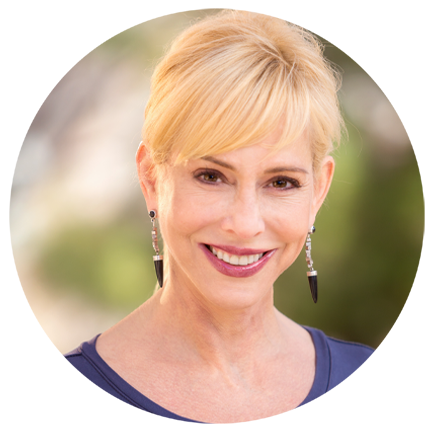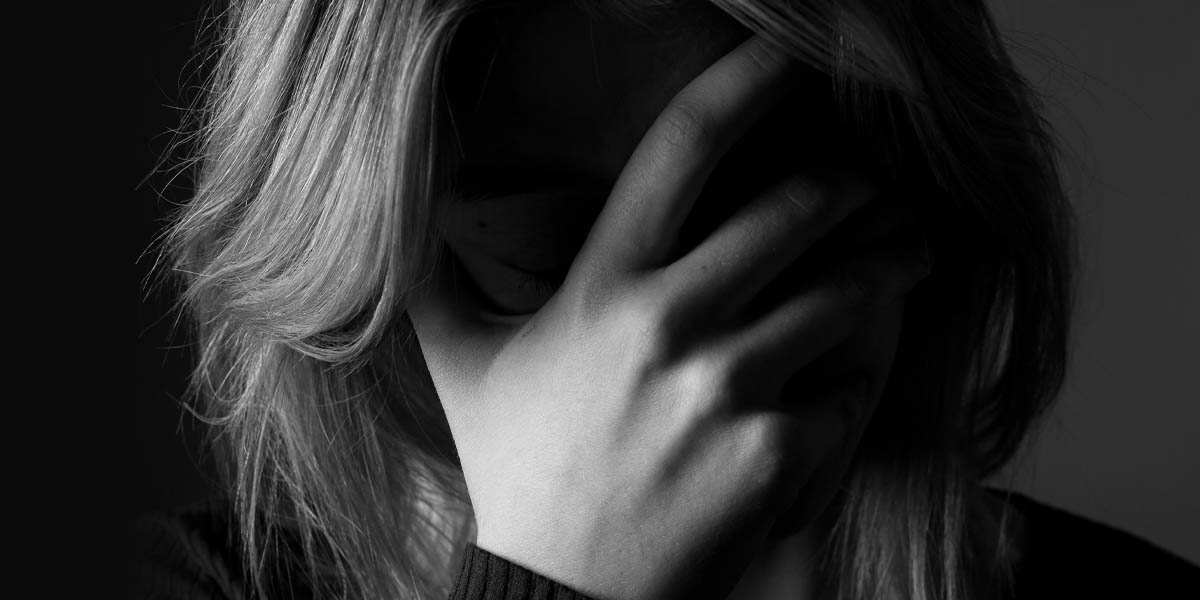Wounds are a part of life. No matter how hard we try, or how together our lives may seem from the outside, we all sustain them. Pain is a natural part of the human experience. And while not always desirable, it’s entirely normal.
Soul wounds affect us the most intensely of all. These archetypal issues impact us on a profound level that often remains below our awareness until some kind of crisis makes us them impossible to ignore. And when this happens, it helps to have wise, compassionate guidance through the process of healing our trauma and transforming our suffering into fuel for our life’s purpose.
Table of Contents
- What is Betrayal?
- Blaming Others
- Blaming Ourselves
- Beliefs Based in Betrayal
- Healing From Betrayal
- Moving Away From the Pain of Betrayal and Towards Your Best Life
- Call Us Today and Let Your Healing Journey Begin
What is Betrayal?
Betrayal is defined as a “violation of a person’s trust or confidence.” We might think of this in the classic sense, as cheating, but betrayal comes in many shapes and sizes. We can be betrayed by a parent who doesn’t keep their promises, a friend who doesn’t have our back, or a partner who hides their substance addiction from us. Betrayal involves disloyalty and deceit and makes us feel neglected, unimportant, and foolish.
What’s most hurtful about betrayal is that it’s often, at least to a degree, intentional. The person who betrays is aware of what they’re doing, but you’re not. The utter shock we experience when we discover a betrayal can be severely unsettling, causing us to question what’s real and disrupting our energetic balance. The intense disappointment, separation, and loss that we feel as a result can leave a wound that takes much time and effort to heal.
Knowing that the person who betrayed us did so in a premeditated way can trigger deep-seated feelings of unworthiness. We deserve to been seen fully: as the whole, complex, valuable people that we are. But betrayal makes us feel that our thoughts and feelings aren’t even remotely considered. And when this happens, we can find ourselves in a world of anger and hurt.
Why Do We Blame Others?
It’s natural to be angry and resentful towards someone you feel has disrespected and hurt you. In fact, you might find yourself ruminating on judgmental thoughts and narratives about their motives. “Blaming and accusing is a common stage in healing from betrayal,” says John Amodeo, Ph.D., author of Love & Betrayal. “Understandably, it conveys our anger — and our viewpoint that our partner or friend did something hurtful and destructive. It’s vital that our partner ‘gets’ that they did something extremely hurtful if they hope to repair trust. But if we get stuck in the anger and blaming stage of the healing process, we’re less likely to heal our betrayal wound.”
While blaming is a normal (and potentially necessary) part of the process of overcoming betrayal, this isn’t a phase we want to stay in forever. Judging others allows us to shift the focus off of ourselves, but eventually, we need to face the reality of our own pain. “Although betrayal is one of the most egregious expressions of our darkness, forgiveness is the strongest evidence for the nobleness that fuels our faith in the worthiness of humanity. But I caution that intellectual resolution is not sufficient because betrayal wounds the heart more than the head,” says Dr. Mario Martinez, clinical neuropsychologist and founder of biocognitive science. He proposes a path out of suffering from betrayal through harnessing our positive traits: “Instead, the healing field of loyalty opens a portal to forgiveness where anger and fear are gradually dissolved with the redemption of love.”
Why Do We Blame Ourselves?
We, humans, rely heavily on each other for validation and support. As social creatures, our emotional wellbeing is very tied up in how others see us and act towards us. But none of us are perfect, and we sometimes fall short of fulfilling these roles. This is why it’s so crucial to learn and practice forgiveness – and that starts with forgiving ourselves.
Blaming others for hurting us eventually leads us to blaming ourselves. As we reflect on what happened, we might at some point reach the conclusion that it was our fault. We may find reasons to believe we created the circumstances that led to betrayal or feel stupid for not seeing the truth. We may even keep ourselves largely in denial about a situation that’s too painful to fully acknowledge.
Again, this is all a natural response to feeling severely wronged. But eventually, we need to move on from this stage by finding compassion for ourselves and creating space to experience our feelings. Truly healing requires us to take a deeper look at what is being triggered and to honestly face our pain.
Beliefs Based in Betrayal
Soul wounds lead us to develop beliefs about the world around us. Everything we do is based on a belief, whether we realize it or not. Therefore, what we believe about ourselves and others immensely informs the way we live our lives.
The wound of betrayal causes us to challenge our beliefs. Suddenly, everything we know to be true about our relationship with someone gets thrown into question – and this often extends to our relationships with everyone. We may feel disoriented, unsure of what’s true and in whom we can trust. This leads to serious feelings of mistrust in others and in the goodness of people overall. We fear that people will always deceive or disappoint us. And as an attempt to avoid those situations, we might respond by:
- Trying to control outcomes
- Losing touch with our emotions
- Feeling the need to assert our will or get our point across
- Performing and achieving to prove our worth
- Becoming less comfortable with things we can’t predict
Betrayal can (and often does) reactivate traumas from the past. This can feel excruciating at the time, but in the larger picture, it gives us an opportunity to work through long-held wounds that are holding us back from being the person we are meant to become.
Healing From A Betrayal Wound
Betrayal can be jarring and confusing, and it helps to cultivate our ability to understand what we’re going through. By becoming aware of our soul wounds, we can more clearly see what’s happening for what it is, instead of identifying too closely with our stories around it. We can also more honestly contact our emotions, and cultivate more self-love as we allow ourselves to feel.
The families and cultures we grow up in and our experiences of trauma may teach us that it’s not acceptable to express our anger, sadness, or hurt. We may think we need to avoid our pain (addictions often develop as a means to do so), instead of honoring it. But pain can be illuminating, and the lessons it has to teach us can be invaluable on our quest to better know ourselves and be powerful agents of our own lives. Emotions are like a rainbow, and we should be fluent in every color – but most of us are limited to a select few. The healing journey is a way to expand your capabilities and embrace the fullness of your own life. And this starts by learning to release your negative beliefs about yourself and reclaim your innate strengths.
Moving Away From the Pain of Betrayal and Towards Your Best Life
The process of healing from core wounds is a deep and intense one, and it helps to have guidance and support as you do this very important work.
The Sanctuary isn’t your average treatment center. We offer a more in-depth healing process, based on a complete roadmap to recovery. This journey is designed to help you break free from the places where you’re stuck. Then, you can move on to becoming who you truly want to be. We don’t just remedy the symptoms of depression, anxiety, and trauma – we help you identify their core causes and create real-life change. Our clients come away from our program feeling like they’ve changed their entire relationship with themselves and the world around them.
This journey is an empowering one. We’re not here to “fix” what’s “broken,” because you’re not broken. You are whole, and you have something very important to offer the world. We’re here to help you see that, and own it. And we understand that working through soul wounds like the ones caused by betrayal can provide a powerful opportunity. This work inspires an inward journey with the potential to radically change your life.
In our small, family-like atmosphere, you’re able to be yourself without fear of judgment. This allows you to safely access and work on the issues that live in the deepest parts of your being. Here, you’re a meaningful member of our community. And the authenticity of your relationships at The Sanctuary serves as a new baseline for all the relationships your life.
Call Us Today and Let Your Healing Journey Begin
You can not only heal from betrayal wounds; you can use what you learn along the way take your personal journey farther than you ever knew you could. Discover how powerful you are – contact us to learn more about our holistic healing program today.
Read More about Soul Sickness and Core Wounds in our 5 part Series.
Soul Sickness and Core Wounds, Pt. 1: Abandonment
Soul Sickness and Core Wounds, Pt. 2: Abuse
Soul Sickness and Core Wounds, Pt. 4: Defectiveness
Soul Sickness and Core Wounds, Pt. 5: Separation
Kelley Alexander JD. is the co-director of The Sanctuary at Sedona and has worked over the last decade to develop its innovative Integrative Addiction Recovery Program that has helped hundreds of clients to be recovered from addiction and co-occurring disorders. Through her pioneering work, Kelley and her team at The Sanctuary also work with clients to overcome issues related to codependency, anxiety, depression, and PTSD. A JD and former practicing attorney, Kelley holds a BA in World Religions and has done graduate work in psychology. She is an ordained minister, certified shamanic breathwork facilitator, and a graduate of the Four Winds Healing The Light Body School, the premier energy medicine program founded by Alberto Villoldo. Kelley has also been a student of Dr. Joe Dispenza since 2009. She is a member of the Association for Comprehensive Energy Psychology and the Institute for Holistic Addiction Studies. She is a frequent lecturer at seminars and conferences throughout the United States.
[email protected]

